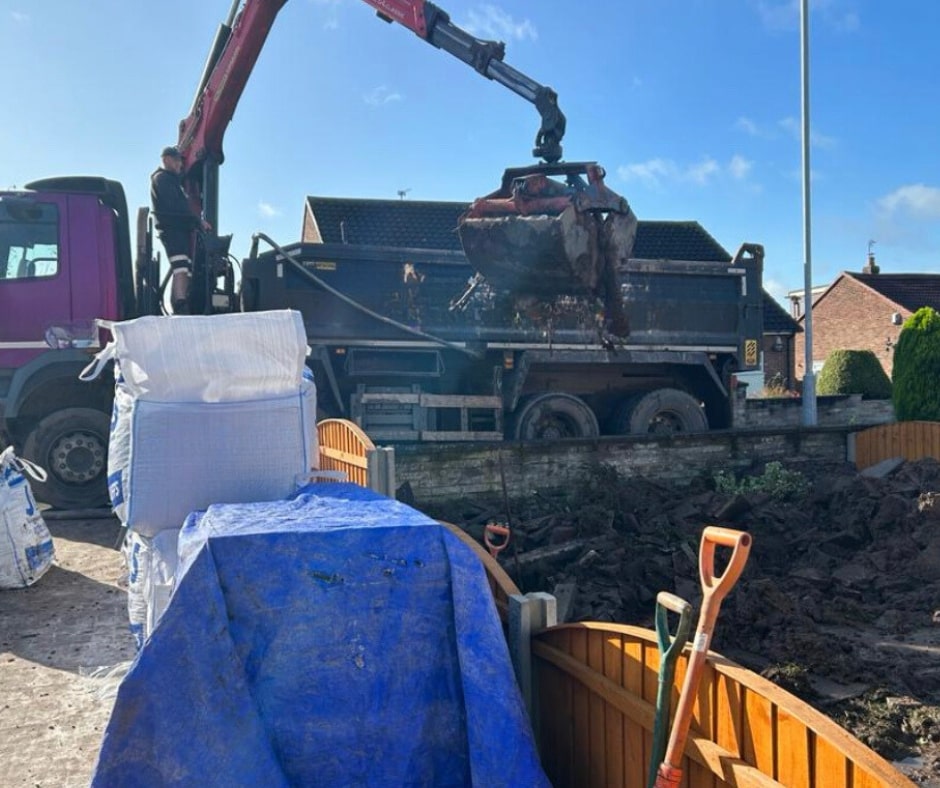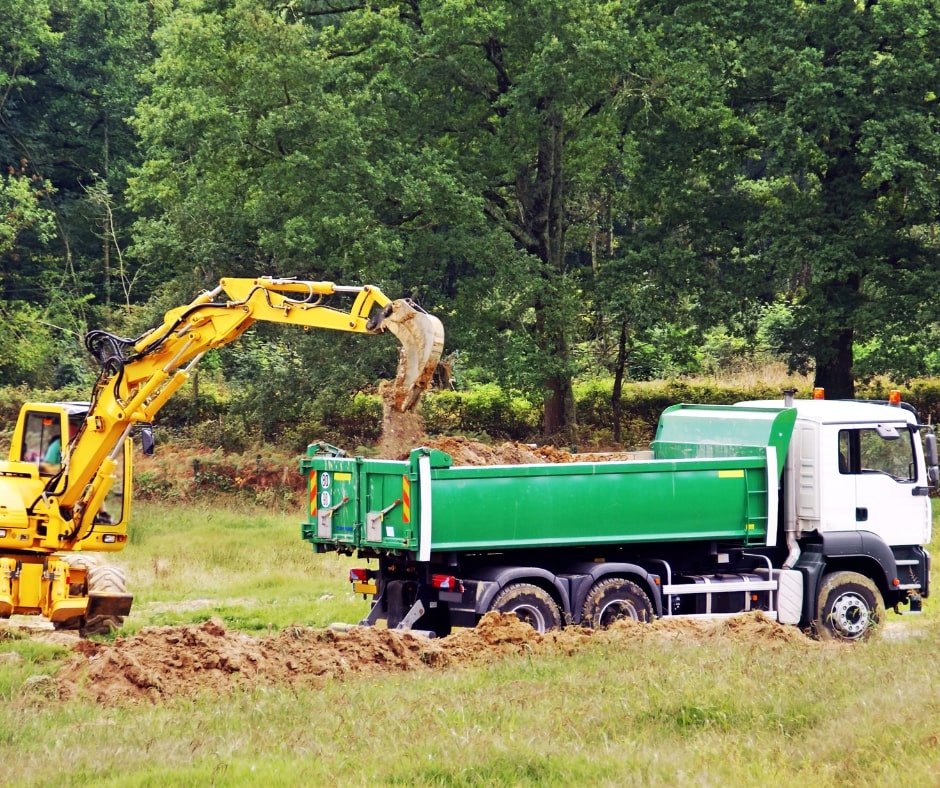Anyone who works in the construction industry will be familiar with the phrase “Muck Away”. This term refers to the removal of waste soil from a construction site, once your waste soil is removed it can then be disposed of, treated (remediation), or, reused.
If you are producing large amounts of waste soil, it might be worth working with a specialist muck away contractor who can help make sure your soil is removed, transported, and disposed of correctly.

Are there different types of muck away?
As the soil you are removing is classified as waste, it’s important that the material is tested and classified according to the Waste Acceptance Criteria (WAC) protocol. This testing will determine the chemical properties of your soil and any of the water that can leak out of it (leachate) and will allow you to categorise the soil into one of three categories- inert, non-hazardous, or hazardous.
Once you know what category your soil is, you can then select the correct landfill site and choose the right muck away for your project. Let’s look at each one in more detail:
Inert muck away– If your soil is clean from contamination and has been tested to prove it poses no risk to human health or the environment, then it can be classified as inert waste. From a regulatory perspective, inert waste is waste that does not undergo any significant physical, chemical, or biological transformation.
If you have inert waste soil, consider whether it could be reused elsewhere as this is the more environmentally friendly and cost-effective option. If it cannot be reused, you can dispose of it at an inert landfill site.
Non-hazardous muck away– Soil is classified as non-hazardous if there are low levels of contamination detected in the leachate. For your soil to be classified as non-hazardous, it must be deemed that the contamination is at a low enough level not to pose a risk to human health or the environment.
You will need to dispose of any non-hazardous soil at a non-hazardous landfill that has the correct permits to accept your soil. They will perform their own testing to ensure that the soil isn’t hazardous before accepting. Depending on the level of contamination, you might be able to reuse non-hazardous soils once a risk assessment is completed.
Hazardous muck away– If your soil is found to have high levels of contamination that pose a risk to human health and the environment then it will be classified as hazardous.
Common contaminants found in construction waste soil include asbestos, heavy metals, and chemical waste. All hazardous waste soils need to be disposed of at a landfill site that is permitted to accept hazardous material.

Who can provide muck away?
If you have a large amount of soil to remove it may be worth using a specialist muck away contractor. Any company removing waste soil has a duty of care to follow and as a minimum must:
- Be registered as a waste carrier.
- Make sure the waste is correctly classified.
- Ensure correct segregation of the waste.
- Accurately complete the consignment note and all other documentation.
- Provide a copy of the consignment note with the waste producer and keep two copies of the note.
- Transport the waste soil to the correct disposal site and record this on the consignment note.
- Store the consignment note for at least 1 year.
How is the waste soil removed from your site?
Once you’ve excavated the soil from your site using diggers and other machinery, it will be transported away in specialist lorries, these tend to be:
- Grab lorries
- Tipper trucks.
- Arctic wagons.
Which one you use will generally depend on the site conditions and the amount of muck you are moving. Grab lorries can load themselves but have a slightly lower payload than tippers, tippers are great when there is a machine available to load them. Arctics can carry the most material, however, they need more room to maneuver than tippers or grabs.
Once your muck is loaded it can then be transported by road to the designated disposal site depending on the material classification.

What sort of companies provide muck away?
To offer muck away as a service your business needs to be registered as a waste carrier with the Environment Agency. This is not just limited to companies that transport the material but also those that buy or sell the waste (dealer), or someone who arranges for the buying, selling, or disposal of waste (broker).
Many earthmoving companies will offer muck away services but so will waste companies, some skip hire firms, tipper hire companies, demolition contractors, and even some landscapers.
If you have any questions about the removal, testing, transport or, disposal of construction waste contact the team today here. We love talking rubbish!
